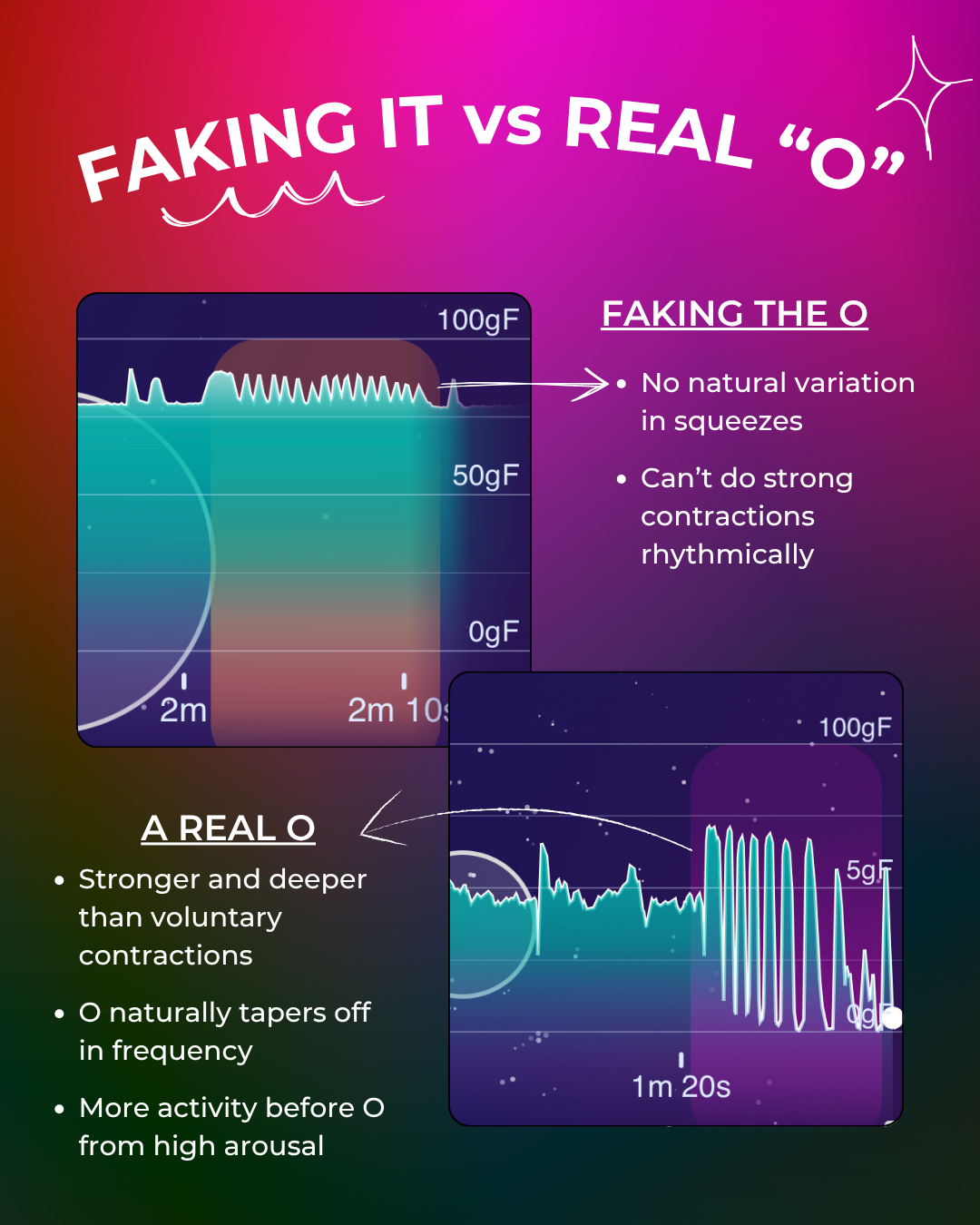We’ve all heard it before: it’s not about the orgasm, it’s about the pleasurable experience. And fundamentally, the saying is not wrong.
But let’s be real. When you used to have orgasmsand you can’t anymore, it can be a really frustrating thing to hear. Yeah, yeah. We know it’s not ALL about the O…but sometimes it is, right?
If you’re left feeling frustrated during or after sex and masturbation thinking “why can’t I cum anymore” then this one's for you. (And no judgement if you’re just out here looking to nut every once in a while. That’s OKAY.)
What is it called when you can’t orgasm?
Before we get into possible orgasm killers, let’s take a quick look at anorgasmia.

Anorgasmia is the word we use to say “unable to orgasm,” and there are two types:
- Primary Anorgasmia — A complete inability to orgasm with a history of never being able to climax
- Secondary Anorgasmia — An inability or difficulty achieving orgasm despite being able to at one point in time
This means that if you used to experience orgasms and can’t now, you are experiencing secondary anorgasmia.
So why can’t I cum?
If you used to be able to orgasm but find it difficult or impossible now, there are a handful of things that can be causing your secondary anorgasmia. More often than not, there’s some combination of them working together to make reaching the finish line feel like running in a dream.
Orgasm killer #1: Stress and anxiety
If you’re feeling overwhelmed from life stress or an anxiety disorder, your libido is very likely to suffer. After all, when your brain is honed in on things you’re worried about, it’s incredibly difficult to shift your focus on getting into the mood.
The same can be said, however, for any stress or anxiety you might feel about not being able to orgasm. For most people, the more pressure there is to finish, the less likely orgasm is to occur.
Orgasm killer #2: Hormonal changes
For people with vaginas, hormonal changes can really wreak havoc on their ability to orgasm. Anything from peri/menopause to PCOS and thyroid conditions can make it harder (or impossible) to climax during sex.
Orgasm killer #3: Unfulfilling or unhappy relationship
It’s not what you want to hear, but it needs to be said: if you’re in a relationship that just isn’t doing it for you then it may be killing your orgasms. Partnered sex gets less pleasurable when you’re not doing it with enthusiasm.
That’s not to say you need to abandon your relationship! If you’re able to enrich the partnership and find your relationship more fulfilling, you’ll likely improve your sexual pleasure in the process.
Orgasm killer #4: Not enough novelty
Do you do the same thing every. single. time. you have sex or masturbate? If you do — and you find it’s no longer working — a lack of novelty might be contributing to your secondary anorgasmia.
Orgasm killer #5: Trauma or health side effects
Experiencing trauma or health issues can both make it increasingly difficult to orgasm. Depending on what’s available to you, whether that’s a doctor, a therapist, or a supportive partner, working through these things can be a bit harder than other O-killers.
Will I ever have an orgasm again?
Experiencing something like the intense pleasure of an orgasm only to have it ripped away for any reason at all can make even the most cheery folks pessimistic. If you’re wondering if you’ll ever have another orgasm, you’re not alone and you’re definitely normal.
While there’s no concrete timeline or steps for how you can start orgasming again, secondary anorgasmia can be overcome. Here are some great places to start:
- Re-establish your relationship with pleasure…outside of sexual pleasure (take a long hot bath, listening to music you love, engage in something you enjoy just for the sake of having a good time)
- Track your sexual pleasure and arousal using a sex journal or Lioness Vibrator
- Spend time learning and identifying things that influence your arousal/desire (stress, work, relationships, health, etc.)
- Share that information with anyone who may be able to join you in your pleasure journey, whether that’s a partner, therapist, doctor, etc.
Identifying the root cause(s) of your secondary anorgasmia along with your support system is an excellent starting point for becoming orgasmic again. Until that happens, focus on feeling good inside and outside of the bedroom and really lean into what brings you pleasure.



